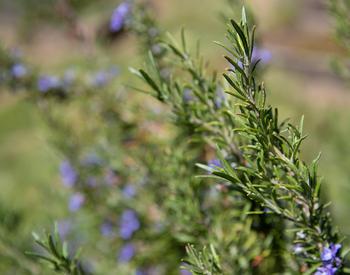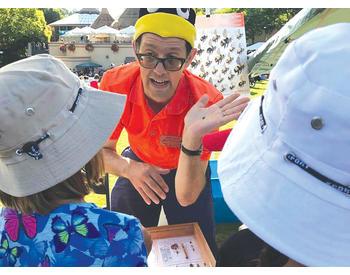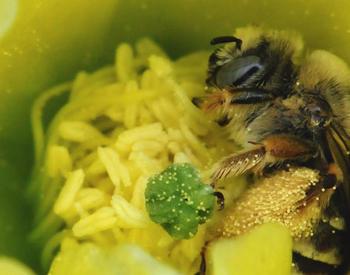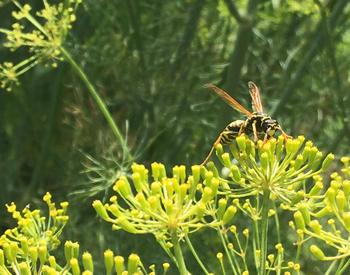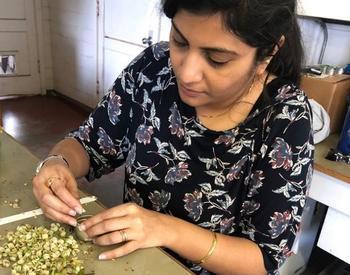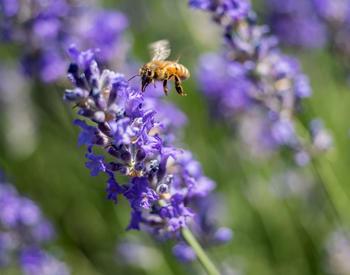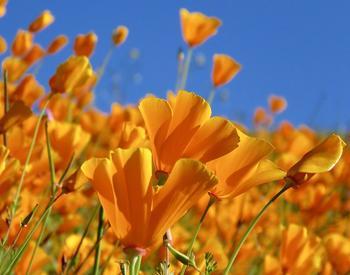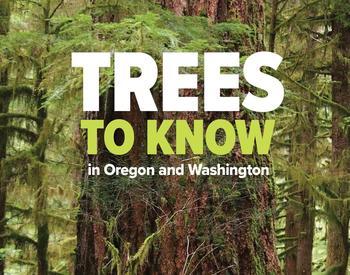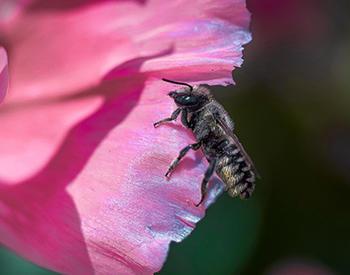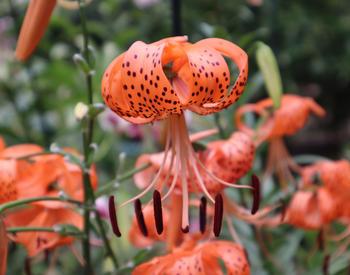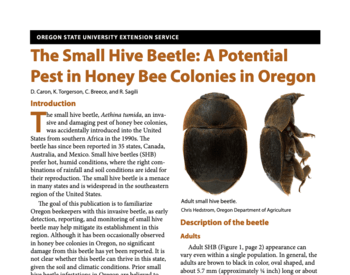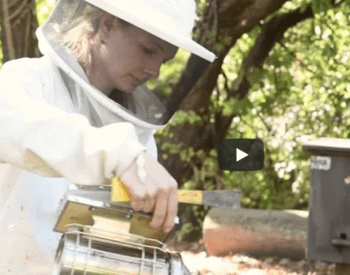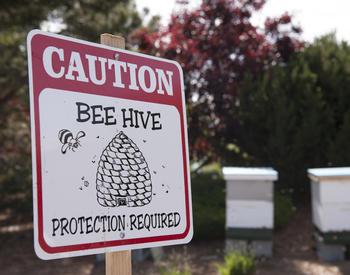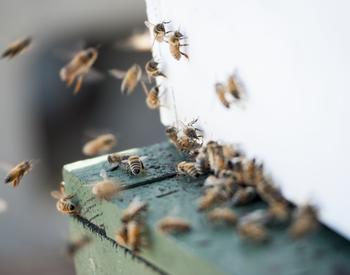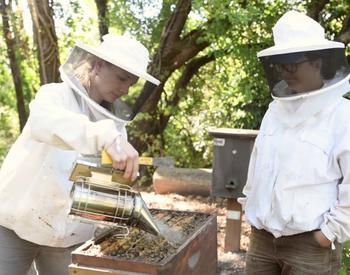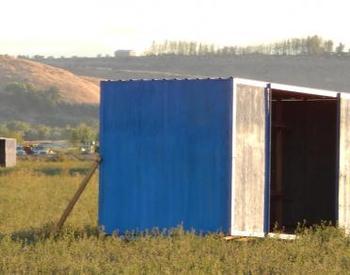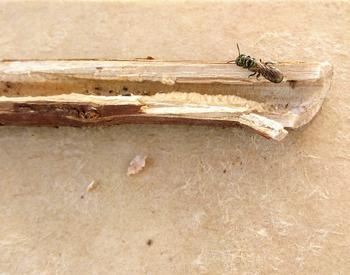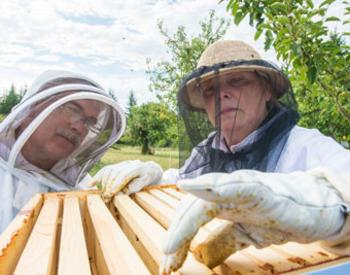Transcript
[00:00:00] When will this cold and rainy weather pass in the Pacific Northwest? It's starting to get serious folks. It's almost the end of April. Lots of key crops are butted up. They have not opened up as usual. And I don't have an answer to this question. This episode is not dedicated to forecasting, but it is dedicated to understanding the implications of this to both crop pollination and to our commercial beekeepers.
And. Answer this question. Who better than Harry Vanderpool. Harry's been on the on the podcast before. He is my mentor when I started my program here. A person I lean on heavily runs Vanderpool Farms in Salem, Oregon. He also has been a past president of the Oregon State Beekeepers Association.
Also has a great extension publication, if you haven't checked it out on making. For in the later summer or during the year for making increases to your colony. Harry's got a lot of answers. He's got a lot of insight into what's going on this year, and he's gonna talk about his strategies for [00:01:00] dealing with this kind of climate.
I also wanna put a quick plug for those of you who have not heard. I'm gonna have this in the show notes. We have a new B friendly wine initiative here in Oregon. Part of that is a tour. There are vineyards around Oregon that are around western Oregon in the Willamette Valley specifically, that are going in the extra mile to do pollinator protection.
If you go to the Oregon B project website, you can see where some of these vineyards are and they've got some activities that you can visit and learn about things like how to keep bees or how to keep mason bees, how to plant gardens for bees at the same time as enjoying some. So that's great and it's gonna warm up and you're gonna enjoy wine on the balcony and you're gonna learn about beekeeping skills.
But for now, how do you deal with this weather this week on pollination with Harry Vanderpool?[00:02:00]
Okay. I am so thrilled to welcome back Harry Vanderpool to Pollination. Hi Harry. Hi, Adoni. It's always great to speak with you. It's, I'm looking out my window and it's another. Yet another very wet day in Oregon. And I just wanted to catch up with you as a commercial beekeeper just to get a sense of what, the last few months are like, and what's up ahead.
And maybe just starting with, how did we get here? So how was it coming, how were your colonies and what was the, what was the challenges coming into the.
So one thing that stuck in my head from my early years in beekeeping is a statement that. Everything good in your beekeeping year begins in the fall and eh, a little truth to that and a little non-truth [00:03:00] because I take all my losses in the fall. It's very rare that I have any winter losses at all this year.
I did, I lost some hives from the last time. Step them. I did lose have some winter losses, but generally speaking, the losses are behind me by the time I wrap the hives up in late October. Maybe just, and just to stop you for a second there, many people may not think of that concept. I take my losses on the front end of the fall.
What does that just break that down. What does that. Operationally that means that, we now have tests and diseases that we didn't used to have to deal with. And sometimes in the course of slugging it out with with treatments such as foric acid or some sort of a timeall such as Apigard
you can lose some queens. Those guys can get away from you. And you find yourself, and and this is the thing, you're getting tired in the fall. We're all very tired in the fall, and you're just wanting to wrap [00:04:00] things up and you find hives here and there that got too far away from you. And so those, rather than trying to baby through small, through the winter, I will shake them in, out in front of another hive or combine them and just try to go into winter with good, strong, healthy hives while pulling out and culling out things.
And makes it easier when you're grading for almonds to not have to deal with those. Okay, thanks. Thanks for that clarification, Harry. You did that this fall and then went into winter. In the fall, we had something very unusual. It may have happened before and I didn't notice it as much as I did this here, but we had this tremendous ivy flow.
Really? And I, yeah, and I kept going into my different yards of smelling this grainy, earthy nectar being dried. And I was like, what is that? It smelled. It smelled grainy. And finally I was out and I walked by a ivy Bush [00:05:00] that's in Broom and the bees were, and it smelled the same. And so I went to my book that Stringer and Birget did and about the nectar plants of Oregon.
And sure enough, yeah, the statement in there was, it's the last big nectar. In Willamette Valley is ivy and boy, we had a big one. It's nectar and pollen, and it built those bees up just gorgeous. After our last night treatment. I was very grateful for that. So this would've been like September? This would've been late September.
Yes. I'll be darn early October. And it's a little different. I, we have Ivy around, so I notice it every year, but I just have never noticed the bees. Forging that heavy on it. It was just a heavy year for Ivy. Okay. So that and then I remember it got really cold real quick after after September. It got cold quick, along with the iv.
I fed the hives heavily with with sugar [00:06:00] syrup, which is sucrose is what I use. 66 66 to 67% solids. No pollen patties. I said, no pollen patties in the fall. I said, no, pollen patties is spring. And so then I wrapped 'em up the winter and when I graded them out for California, California requires a certain hive strength.
So we just don't, at least, I don't just ship any old hive down there. I go through and pick out the biggest and, heaviest hives, they were heavy with feed. They were too heavy. Oh. Really, I was really worried. Oh my gosh. I was really worried. I was gonna take these hives down there into sunny California and the sun was gonna come out, and then they were going to bring in ne NEC to really fast and swarm.
I was gonna have heavy swarming in California. Really worried about. And then what happened? We took the bees to California. First thing we saw is one of the heaviest bud sets on the. [00:07:00] In years, it was the thickest, oh my God, we're gonna have this huge bloom, which we did, but it rained the entire time the bees were there.
Had an hour here, an hour there to pollinate, but mainly they were in their hives most of the time. So let me get this straight. So you went down there, you're real worried for some reason this year the colonies came out big and heavy. There was a lot of feed in there. You're worried with this thick bud set in almonds that the would a whole bunch of nectar pollen coming in with cos and they'd be swarming.
We'd have all sorts of problems, but it was cold. But it was cold and the bees did really well. It got so muddy for most beekeepers, they couldn't even reach their hives to feed them. The last thing in the world I wanted to do was feed my hives. So that was one worry I did not have. That's great. Okay. And it just goes to show in beekeeping and a [00:08:00] lot of agriculture how connected we are with.
Mother Nature out there and how good things happen and bad things can happen, and. What I've seen this year so far is it's all of agriculture. It's raining and hard to do anything and muddy, but hey, all of agriculture is either suffering or in delight with the conditions that are presented to them.
So I guess af this with the conditions that you had very heavy colonies. They went into pollination, and I guess there's not a lot of great days for forging. Did the colonies look bad after almonds or what did when you I guess you went down there, you looked through the colonies after pollination.
How did they. So that is always a thing, is sometimes you take hives down. Let's say they're eight frames of bees, eight, 10 frames of bees 12 frames of bees you expect to [00:09:00] grow. In a year like this is the bud set. If it would've been 70 and 80 degrees the whole time, it would look, it would appear that those hives would've doubled their size.
Uhhuh just come back smoking. They came back with growth. They came back with. A lot of pol not a lot of pollen. They came back with pollen and nectar on 'em, so you could tell that they did have hours here and there. The growers down there are generally optimistic in the north where I am up south of Chico, and I just hope the best for them down there.
They need a good year. They've had two lousy years due to the frost.
So your colonies then looked they didn't grow hugely, but they growed a little bit and that was sufficient for them to be able to they didn't go backwards. They didn't go backwards. Okay. And I do, everybody does things a little different and that's something notable [00:10:00] about beekeeping.
I do things a little different when it comes to the. Things I do with my hives after most beekeepers I know go down there and split their hives immediately after bloom. I do not do that. I never have done that. Okay, so the typicals home, the typical practice is that colonies grow on almonds and then you divide them to make up losses to increase your calling numbers, take pressures off the colonies, but you don.
Yeah, they immediately do that. Some of them will allow queen breeders to shake bees. And which is great because the queen breeders need those bulk bees. I don't do any of those things. I, as soon as my hives are released, I bring them back home and they get a queen check and they get a, they get seed if needed.
They did not need feed. And they got a honey super a queen excluder and a honey super. And then I go into peaches and cherries, and when those hives are busting, then they get a hard divide [00:11:00] in half. And what I believe in strongly. And the reason that I, I don't do any policies or procedures just by hunch, there has to be some rationale or reason.
My mentor, Kenny Williams, really pounded that into my head. Thank heavens. Why are you doing this? And the why of it is I have almost no chalk brood. I say almost no chalk brooded, and very little down to nothing Of a European foul brood. Oh, so the idea, and that is the one. Yeah. So the idea is if you split them the colonies, and it's a little bit of a vulnerable time for a colony, it can promote diseases, but instead you leave them.
Until they come here and so you don't have as much disease. That's my belief and that's what I see. Okay. I answer the phone all spring along with a European and chalk brooded man pouring out the, I don't see that. And that is my belief. And then when you do make those hard divides right in half, [00:12:00] you're doing it, when the cherries and the tree fruits are browning out in the maples and and their nutrition is at their peak, not in a valley, right after.
Right after almonds. All right let's fill in the gap right there. So after all, Al after almonds, you put a little, give them a little bit more space with the honey. Super. And so these callings are transported up here. When did they, when did your colonies come back to Oregon?
That was a disaster for everyone. And and so the bloom, brown down and I was able to go down and get one load out, and then the other two were basically locked. Into the orchard with mud. Oh, no. Impassable. And they sat down there for three more weeks. I was grateful for the load.
I got up, I was able to get peaches, peaches of the earliest crop. They're actually a relative of almonds, by the way. A narrow near cousin of almonds. Oh, I suppose like you looking at peaches, a little almond inside. Yeah, there you go. [00:13:00] And so they're the earliest crop up here in, in Oregon. And thankfully I was able to get a, my first load out, really ringing your hands and pacing the floor, cuz it rained and rained and kept raining and raining down there, man.
But they're all home now. And this is the latest. Ever taking bees into cherries. This is the 20th as we speak of April, and I can go to my mileage log in my trucks, and you can see that we've pulled bees out of cherries in some dry years in this time of the, of April. Okay. And I have not delivered, I've got three cherry orchards to go in, and I'm waiting for the calls.
Oh, cuz they have the bloom hasn't started. And the real risk here, mine are all in Salem, Oregon, Uhhuh. And the risk here is that we have maples all over the place and they are popping bloom. So we don't want to move our bees in until we have 5% bloom. At least [00:14:00] we have no bloom. We have no cherry bloom at all.
And we do not wanna move the bees in and get them dialed in on maples. Prior to having some bloom, and get some focus on the, it happens, there's years where you'd move your bees into cherries and they fly out of the hive through the cherry orchard, straight to the maples, Uhhuh.
Okay. And we wanna do everything we can to try to mitigate that if we can. The two of the things that I just wanted to quickly catch up on here, cuz this brings us up to the present day and the present time is for you as a beekeeper managing, I guess these callings are, have still been growing over time and I guess.
You probably need a dry, warm day to do work. In addition, the growers need some heat to be able to so tell me how those two things are gonna maybe starting with the callings, like what's in store for you? The, as soon as it warms up. So I got my first box of bees. I normally get my first box on the 1st of [00:15:00] April every year.
Oh, queens. And you mean. I'm sorry, I got my first box. Queens and like I said, in agriculture it's, we're all in it together. And the queen breeders down in Northern California they were not, they did not have sufficient mating weather to get the early queens out. So I got my first box of Queens two days ago and I'm out making up Queen Banks.
So when I get my queens, let's say you get a box a hundred queens. I take five frame nukes and I make queen banks, and I put. I make as many queen banks as I can so that I'm only like, say a hundred queens. I'll have 25 queens in Queen Bank frames in those and make 'em heavy with bees and feed so that they can get through nights, like tonight's gonna be 38 degrees.
I want these queens well covered and fed. And then as I use each queen bank one, one at a time, the last queen in that Queen bank. It's a candy plug [00:16:00] and inserted, and then that queen bank becomes a nuke. Okay. Just for those out there that this was too dense. So the, what you've said you've done is you get all these queens that are produced in California that come in a box and they need to be tended by bees.
And so you have these small queen less colonies. And I guess the key thing that you mentioned is because it's so cool, You don't put a lot of these queens into one colony. Otherwise there's the risk. They might not be tended or chilled, and so you're making them, you're really spreading those queens out across a lot of these nukes.
And then I guess your last step is when you've used all the queens up, you have one col, one queen that just. Takes over that thing and then you've created a new colony. That's right, because I need nukes too. Then I just move on to the next queen bank. I like the portability of having them in five frame nukes.
When you're gonna go to a yard here if the sun ever shines you take a, you got 17 queens, 20 queens, what, 30 whatever in a queen bank. You can just pick up that nuke, plug the entrance, [00:17:00] take it with you, and you got your queen bank with you. I take a queen bank everywhere I go.
And then the queens stay at the right temperature cuz the bees regulate it. So it's a nice kind of queen mobile kind of unit that you can take. That's right. Oh, that's great. Okay. And so my queen producers know and my queen producers know that when I order queens, as soon as that u p s truck arrives, those queens come out of the battery box and go into a very stocked queen bank to care for them.
So really grateful for my queen producers down there, by the way. And we're all in this together. Okay, so your queens have arrived, but your colonies are big. So what do you, what's your, what's on your mind these days? My mind is dwelling on. We need days with not pouring down rain and horizontal rain so I can actually do something with them.
One thing that, not to be a downer, but it is something to talk about and I go to [00:18:00] the Farm Bureau convention and meetings and mental health. Is a real serious issue in agriculture. All for all, you name it, whether it's forestry or grass or Christmas trees or beekeeping or whatever.
There's a lot of pressure and gambling in in agriculture and I'm usually a happy-go-lucky guy. But boy, I'll tell you, and I feel bad ever complaining about the weather, whether it's dry or hot, but it. Has been challenging this spring to, to keep cheerful throughout all of this and while you're ringing your hands and wearing a pattern out on the carpet.
I am, I'm glad to at least get the conversation out. Cause I think for a lot of people that, the be especially I was thinking growers and although, growers are facing their own problems this spring, the colonies arrive and, they were that there's a lot of work that you on your first couple of [00:19:00] warm days are gonna have to hustle, I imagine.
You've got more than couple. It's gonna be a spring. Yeah. For quite a while, just to get 'em apart and I will have some swarming. It's just every day that passes is guaranteeing me. I'm gonna have some swarming because I'm being locked out of the highs. I know some people go out and pouring down freezing rain and make divides.
I just don't do that. Tell us a little bit about the hustle. What you've gotta do you what it's gonna be like when the temperature turns here, what's. What are you gonna be, trying, you're gonna be running around trying to do multiple things. What's on your agenda?
So I'll be delivering bees into cherries here probably later this week, or ear early next week. And then I have already informed all of my growers that I will be dividing hives. The first opportunity in the crop. And that's something that I try to put off till the crop's browning out. But they, I explained to them that it's, either I divide the hir or we lose half of the hive.
And they [00:20:00] prune their trees and they understand that we prune our hives as well. So there I take my boom truck. I have a a flatbed truck with a easy loader boom on it, and I load six pallets. So that's 24 hives of dead outs. Those are hives that I did lose in the fall. I took into the shop and went through them and meticulously set them up with a recipe.
We're making hard divides. So the top box on those has two frames of foundation in the back, a solid frame of honey, a couple frames of comb, and then another frame of honey comb, and then the feeder. And what I will do is I'll take that truck and I'll go to a location where there's bees. I will pull the honey super off, set it aside.
I'll go into the upper. I'll find the queen and drop her into the bottom box of the parent hive. Now I have the [00:21:00] upper brood box that just loaded with brooded and feed and bees, and it will go onto the truck. On one of those hives, and I will take that the top box off of, replace it with the top box.
It has that, that recipe in there and replace it with that. Now the parent hive there where I went has the queen in the bottom can move up through with that perfect comb and feed and the, there's bees in the honey super and the field bees there There's, the hives that you're reducing, they're in the crop, are huge.
The grower isn't losing any pollination at all. You're doing it when a lot of the field bees are out in the field. But now we load that truck up with 24 of those divides, take them to one of my yards. Boom them off onto pallets and then go through and introduce a queen in a queen cage for a candy release and those will sit there for at [00:22:00] least 10 days before there's, I come back and queen check and make sure the queen's got released and are out and laying.
And that's the way I've recouped my winter losses, all losses. And I guess the key thing here, if you're a grower listening to this on these years where things are so crammed together that you're not losing you're four, you're still getting, and I always like to remind people, for some of these early crops, it's six frames of bees that you're, is the minimum grade.
You're getting way more than that. And plus you're. You're making sure that colony stays in motion through the entire pollination, cuz it isn't gonna swarm by doing what you've just described. You take the pressure off so you make sure that colony's online for the entire pollination. Oh, and they're gorgeous.
It's, yeah. The result of this just come, you go back to the parent hive, or when I go back to Queen check the divides that I've taken away after a couple weeks. They're just [00:23:00] beautiful and you've just completely kicked the swarm completely out of 'em for now. Sometimes I'll go through later on after metal foam, which is in May, and do it again.
Basically you can make a hard divide if you do it the way I do every 30 days. You've gotta be really careful not to do too late in the summer, where the resources are starting to dry up. It's good to take advantage of this big buildup period we're in or should be in. That's I always beekeeping in the Pacific Northwest is new to me, but I've realized how intense the spring flow is.
It's, it really you fall behind and your colonies are. That's right. I would like to go back if you would allow me to. Of course. And again to go back to the suggestion that I strongly believe in that, that the best things that happened to your. [00:24:00] Your year in beekeeping begin in the fall.
And one of the things that I've really noticed makes a big difference is getting those mite levels down as close to zero as you can. And one of the ways you can do that, and I did a good job this year I hope I can do it again this year, is, we're all tired in the fall. We're all worn out. But get out there and even when your might count, show nothing.
Treat em a couple of times in November and December when you're in the brutal or close to the brutalist period, because I'm going through now and I'm, you break the two brood boxes apart and you have these rows of drone brood that they've where you will see mites. If you have mites. I'm seeing none.
I shouldn't see none. I see one here and then three or four hives later I see one or two. The might loads that I have right now are as [00:25:00] low as you could ever expect to have, and that is because of what happened in the fall in the early winter. That's great to re remember that, to have success through this spring and to set things up.
Managing your oa, and I like the way that you put it at a time when you're tired, you need to go around and do these, the oxalic acid treatment is most effective when there's as little bred in a colony as possible. And so by just investing that time now, you can take OA off the ledger and focus, you already have enough going on.
You don't have to also deal with. The VA numbers will rise and, you will get to a level of concern. But why have that happened this early in the year? I, it's remarkable. It what you can do in the fall to get those levels down to just almost nothing and take the, that pressure off you in the spring where you already are buried in [00:26:00] pressure.
Just to round out the interview today, what I did also wanna get your sense of is the grower side I imagine there's both a tree and sh berry crops just waiting in the bud stage for bees. But I imagine there's also going to be problems with if the rain continues for colony placement and field crops, and if some field, I, I remember for.
Some field crops, they have to mow them and some field crops, they still have to plant them. Tell us what what you're hearing from Oregon growers in terms of the challenges they're gonna face this year for be pollinated crops. So I have two growers that have already informed me. One of them is a research facility that I pollinate for seed research.
And the other one is a general crop farmer. And I had a radish field, supposed to have be 185 hives I think in that one. They both informed me that if it doesn't dry [00:27:00] up soon, And that was three weeks ago. They said that if it doesn't dry up soon, they're gonna call the crop off altogether. Ah, okay.
The one was op radish and spring planted. And the other one is that seed breeders. And so yeah that's pretty bad news for them. And then I can say something positive about cherries. And then my cherry grower's, a fifth generation cherry grower, and he informed me on a year like this, years ago, he drove up, I was doing something there.
I was pouring down rain, and he said, With good, strong bees at the right stage of bloom and temperature, your bees can pollinate the whole orchard in three hours. Okay. And that, I think that happened in California. I, they got an hour here and an hour there. But no, growers are stressed out as the answer to your question.
Adoni. Imagine a lot. And a lot of them are [00:28:00] Anxious to know if there's enough bees. If, there's probably a, on years where they're unusual, there's all sorts of anxiety and I really like what you said about mental health. Agriculture involves a tremendous amount of risk.
And when you have a year like this, things can go badly. And it's outta your control. I have got two calls that were, that sounded like panic calls are you gonna have bees for? And I'm like of course I'm gonna have bees. And I, I said, Hey, if I didn't, I just wouldn't leave you just dangling there.
If I didn't have bees, the first thing I'd do is make sure you do have bees from somebody else. Yeah. I wouldn't just not call and But then they told me that Adonia is that they heard the national news. And by the way, when I was in California, the national news came out and the grower, all the brokers down, they were talking about, it's one of the worst years that they, from the grower side down in California have ever seen.
I don't know why this would happen, but it happened. Semi-loads of bees showing up, half of 'em are dead. The other half are like four and five [00:29:00] frames beyond me why someone would send those bees but I don't know their business end of things. But it was very bad. And that's the national news.
So there is a reason for concern Growers should be contacting their beekeeper. And I guess maybe one last thing that I just wanted to mention you had mentioned this to me a long time ago, is colony placement in wet ears. It can be tricky and that sometimes if you can lay out a good spot, really think about colony placement.
And, you can avoid vehicles getting stuck kind of problems for the beekeeper getting in and out if you just plan in. Some years are gonna be wet and you're gonna need access is gonna be an issue. Can you talk a little bit about that? Adonia, I so appreciate the Oregon B project and all of your hard work in that, and I really appreciate that you have integrated those types of issues.[00:30:00]
Within the discussions of pesticides, because pesticides are just one issue in beekeeping and placement. I think I'm seeing it in some of your work too. Placement is really rising in importance in our movements with bees. In the past it was, I don't think we really gave enough thought to placement.
And, placing bees and then at the wrong time of day, they're in the shade. Maybe you play somewhere in the morning. They're, they shade until till noon. That's a terrible idea. Placing them where they could get flooded out. In the rows or at the end arose where when they're spraying their critical fund fungicides, the spray's gonna get sprayed right into the interior of the hive.
That's ridiculous. I refuse to do that. And it, some growers ha have big operations with [00:31:00] tens of thousands of acres of fields that they lease and that, and you really have to really pound into their head that, okay, this is a new field. Where can I unload? Where you, where can I unload?
Where, how do I get into the field? Sometimes big growers just don't even think of that and it's I got this field and there is no way to put these in there. Yeah. I've had them do that. And then, so you're, you just look 'em and say, I can't put bees in there. You got a fence, a ditch.
How do I put bees in there? Then they end up going, talking to a neighbor. I don't know if they pay 'em, but somehow or another the neighbor says, okay, you can put, you can come in on my property and put bees in there for your crop. It's it's a rising importance and I, again, really commend and appreciate your work on that.
Thanks. And I have seen some growers that have, planned for pollination. They know they're gonna have either a clover crop or me foam and have laid a nice kind of easy ex [00:32:00] access. And sometimes you. There can even be some gravel and it really makes a difference in terms of your ability to get in and out and not get stuck and eat up your time and you don't damage their fields at the same time.
Like a little bit of thought on the front end, I think especially if you're gonna be growing a pollinator crop in the spring, it seems like a great tactic. Make things run. It's that's very important. And I have gone a step further and I have let's say most of my growers that Duke General Ag crops seed crops, field crops I tried to place my hides off the field completely off where once the crop's done, I can lead 'em there for another month or two and that saves moving bees.
Now, moving bees isn't that hard on 'em, but it is hard on 'em and you know there is a certain amount. There's no reason to move bees if you don't need to. Huh And if there's not gonna be pesticide applications in the area I have growers that'll just let me leave them there in that spot and it's out of their [00:33:00] way so that they can harvest.
And that was another thing I wanted to bring up on this year. A doni is that some crops like clover and radish, particularly hybrid radish, When it gets this late in the year if it's spring planted, it's gonna run the harvest like into October. And we've seen years. I know you've seen them where it rained and rained and the crop was a total loss.
I think that's why a lot of the growers right now are just taking a look at radish and saying, I may opt out and just plant it later in grass. I remember last year from Clover because they were unable to mow it. They had, really low yields, like without being able to get that spring cutting out and then allowing them to tiller up it it, it causes problems later on.
These wet springs can really hit the bottom line of some of our growers that we depend on. It does. [00:34:00] I think though, at this time, on the high side of that is down in Southern California, there's probably some almond and almond growers that were pulling their orchards out because of no water that are probably really regretting it right now because, yeah.
They got a foot of water where their orchard used to be. Harry thanks so much for taking time. I know if it wasn't raining, I wouldn't, we wouldn't be having this conversation, but I really appreciate you and our listeners really appreciate and are wishing you luck as as we come into hopefully some better te weather and temperature next.
I don't believe in luck, but I appreciate the thought. We call it good fortune. How's that? Okay, I'll take that. Thank you, Adonia. It was great talking with you. I'm trying to be as cheerful as I can in the face of adversity. Okay. Just know we're cheering you on. Thank you, Adonia. Likewise. Thank you for all you do.
This week we hear about what this cold and wet spring has meant for Pacific Northwest beekeepers (and the crops they pollinate).
Harry Vanderpool has been a beekeeper for 25 years in the south hills of Salem, Oregon. Vanderpool Farms is now a family operation providing pollination services and farm direct honey. Harry has served as Vice President and President of the Willamette Valley Beekeepers Association and Vice President and President of the Oregon State Beekeepers Association, and enjoys working with stakeholders and sometimes conflicting agricultural sectors in a balanced manner to find solutions that will offer meaningful pollinator protection strategies.
Links Mentioned:
